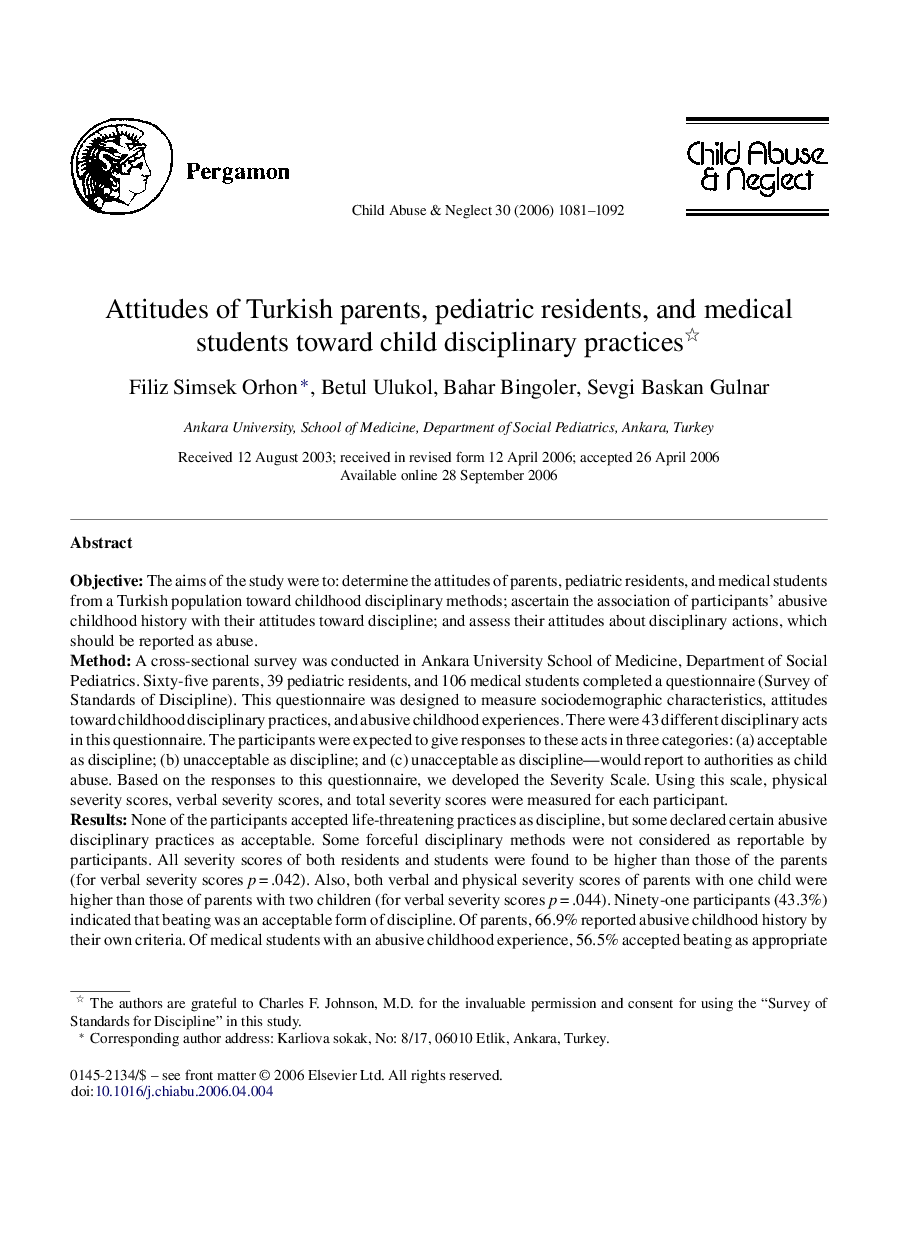| کد مقاله | کد نشریه | سال انتشار | مقاله انگلیسی | نسخه تمام متن |
|---|---|---|---|---|
| 345463 | 617520 | 2006 | 12 صفحه PDF | دانلود رایگان |

ObjectiveThe aims of the study were to: determine the attitudes of parents, pediatric residents, and medical students from a Turkish population toward childhood disciplinary methods; ascertain the association of participants’ abusive childhood history with their attitudes toward discipline; and assess their attitudes about disciplinary actions, which should be reported as abuse.MethodA cross-sectional survey was conducted in Ankara University School of Medicine, Department of Social Pediatrics. Sixty-five parents, 39 pediatric residents, and 106 medical students completed a questionnaire (Survey of Standards of Discipline). This questionnaire was designed to measure sociodemographic characteristics, attitudes toward childhood disciplinary practices, and abusive childhood experiences. There were 43 different disciplinary acts in this questionnaire. The participants were expected to give responses to these acts in three categories: (a) acceptable as discipline; (b) unacceptable as discipline; and (c) unacceptable as discipline—would report to authorities as child abuse. Based on the responses to this questionnaire, we developed the Severity Scale. Using this scale, physical severity scores, verbal severity scores, and total severity scores were measured for each participant.ResultsNone of the participants accepted life-threatening practices as discipline, but some declared certain abusive disciplinary practices as acceptable. Some forceful disciplinary methods were not considered as reportable by participants. All severity scores of both residents and students were found to be higher than those of the parents (for verbal severity scores p = .042). Also, both verbal and physical severity scores of parents with one child were higher than those of parents with two children (for verbal severity scores p = .044). Ninety-one participants (43.3%) indicated that beating was an acceptable form of discipline. Of parents, 66.9% reported abusive childhood history by their own criteria. Of medical students with an abusive childhood experience, 56.5% accepted beating as appropriate (p = .001). Both verbal and physical severity scores were found to be higher in participants with abusive childhood history.ConclusionsAbusive childhood history and lack of education regarding appropriate discipline techniques are linked to the acceptance of certain physical discipline practices. Turkey's cultural and traditional norms may be associated with the use of physical punishment, and in some cases, physical abuse. The lack of awareness of abusive discipline methods among physicians constitutes problems for child protection and must be addressed. Thus, educational programs on child disciplinary practices are required to provide an increased awareness of child abuse among health professional trainees and parents in Turkey.
Journal: Child Abuse & Neglect - Volume 30, Issue 10, October 2006, Pages 1081–1092